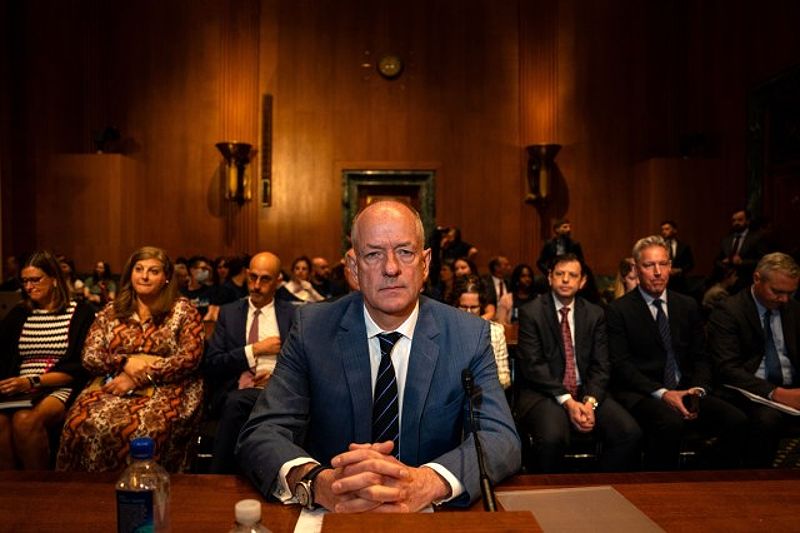A major cyberattack on UnitedHealth Group's subsidiary has revealed significant technology flaws, prompting lawmakers to question the company's size and cybersecurity measures. The attack, which exposed a lack of basic cybersecurity protections, has had a significant impact on the nation's healthcare system. As investigations continue, it is evident that cybersecurity measures must be a priority for all organizations, regardless of their scale or success.
UnitedHealth Cyberattack: Exposing Flaws and Raising Questions
A major cyberattack in February has exposed significant technology flaws within a subsidiary of UnitedHealth Group, raising concerns about the company's size and cybersecurity measures. This incident has prompted lawmakers to question whether the healthcare giant has become too big for its own good. During a Senate Finance Committee hearing, UnitedHealth CEO Andrew Witty expressed disappointment and frustration as he disclosed that a hacked server at the company's Change Healthcare unit lacked crucial multifactor authentication protections.
Committee chair Senator Ron Wyden described the failure to implement basic cybersecurity measures as a significant breach of 'cybersecurity 101.' Senator John Barrasso also voiced confusion as to why such protections were not already in place. Witty acknowledged the flaws and admitted that UnitedHealth was in the process of upgrading security systems after acquiring Change Healthcare in October 2022. While the company's size and scope allowed for a swift response to the cyberattack, Wyden emphasized the need for a comprehensive investigation into both the attack itself and broader concerns surrounding UnitedHealth's practices.
Impact on Healthcare System and Patient Data
The cyberattack, which forced UnitedHealth to shut down Change Healthcare systems used widely to process payment claims for healthcare providers, has had a significant impact on the nation's healthcare system. Witty stated that the systems are gradually returning to normal, but senators criticized the CEO for not yet being able to specify the exact number and identities of affected patients.
UnitedHealth has stated that a substantial proportion of Americans may have been impacted, including members of the U.S. armed forces. Although the company has offered credit monitoring and identity theft protection for two years, Wyden dismissed this as 'cold comfort' and stressed the need for greater transparency regarding the extent of the data breach.
Lack of Multifactor Authentication and System Redundancy
During his testimony, Witty revealed that criminals had used compromised credentials to access the Citrix portal at Change Healthcare. At the time of the attack, multifactor authentication was not in place, a policy that has since been rectified. Despite UnitedHealth's significant financial resources, Senator John Barrasso questioned why the company had not implemented multifactor authentication earlier, citing the successful adoption of such technology by a small, financially struggling hospital in his home state. Wyden echoed these concerns, indicating bipartisan support for further investigation by the committee.
While multifactor authentication can act as a basic defense mechanism against cyberattacks, cybersecurity analyst Brett Callow noted that it does not guarantee absolute protection. Nevertheless, the slow restoration of services following the attack exposed a lack of system redundancy within Change Healthcare, according to Senator Thom Tillis of North Carolina.
UnitedHealth's Size and Responsibility
UnitedHealth Group, Minnesota's largest company and the fourth largest in the U.S., has faced growing scrutiny regarding its size and potential economic and security liabilities. Senator Elizabeth Warren referred to the company as a 'monopoly on steroids.' In response to the cyberattack, Minnesota Attorney General Keith Ellison and 21 other state attorneys general called on UnitedHealth Group to provide additional support to affected healthcare providers and patients. In prepared remarks for a House committee hearing, Witty highlighted the company's efforts to assist healthcare providers with accelerated payments and no-interest, no-fee loans.
The Importance of Cybersecurity Measures
The cyberattack on UnitedHealth Group's subsidiary has exposed glaring technology flaws and raised questions about the company's size and responsibility. As investigations continue, it is evident that cybersecurity measures must be a priority for all organizations, regardless of their scale or success.

